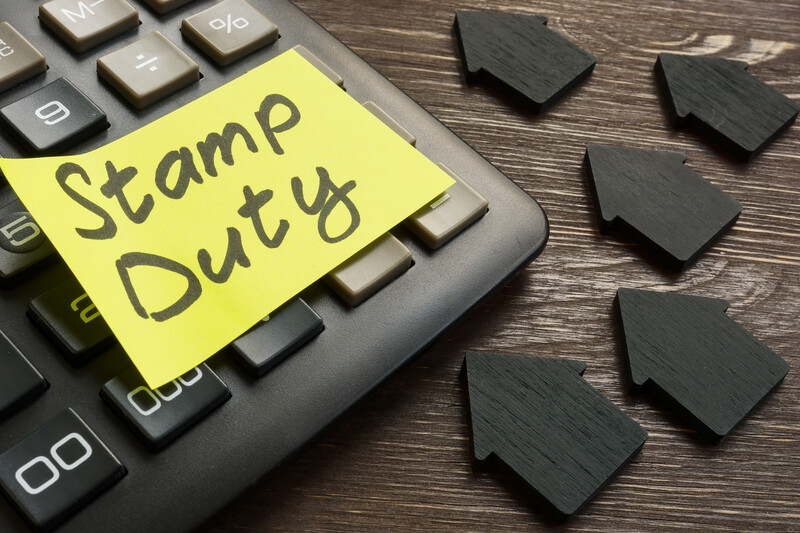Buying a property, especially a home, is considered a big milestone. Owning a home is also one of the most significant investments one can ever make. When buying a property, one thing on your mind is likely to cost of stamp duty. These two words are not appealing to most buyers but must be a smooth process when buying a property. The amount you pay depends on the value of the property you are buying, and this might add up the total cost significantly if the property is valued above a certain price.
Most people usually don’t have an insight about stamp duty when buying a property, and it usually hits them hard when they hear about it when buying. Below is some information on what stamp duty entails and when someone is supposed to pay it.
What is stamp duty?
Stamp duty is the tax charged by the government on the property you buy. This tax is usually paid by the buyer when buying property. The amount of stamp duty you pay for a property depends on its cost, property location, and whether or not it is the only property you own. Stamp duty is organised into bands, meaning you get different percentages of the prices as stamp duty for a different range of prices.
How much stamp duty will you pay on a property?
There are rate bands set in place to guide you on what percentage you will have to pay as stamp duty. It is important to note that the rate bands applied for residential properties are different from those applied for non-residential properties. You will also not pay additional stamp duty if you don’t have any other property under your name. Below are the normal rates for various property prices.
- For prices of up to £125,000 there is zero stamp duty rate paid.
- A 2% stamp duty rate is applied to property prices above £125,001 up to £250,000.
- Properties that fall between £250,001 and £925,000, you have to pay a 5% stamp duty.
- Prices above £925,001 up to £1.5 million a 10% stamp duty is applied.
- For prices that go above £1.5 million you pay a 12% stamp duty.
Stamp duty on additional property
In April 2016, the government made it necessary for owners of properties to pay stamp duty when buying additional property. This does not apply when you sell your previous properties. However, you will have to pay a surcharge in addition to the normal stamp duty charges if you will end up owning more than one property at the end of the buying process.
Stamp duty charges for additional properties are also calculated in the same way you would when buying your first property. The rates you pay are divided into different bands or categories, and they are calculated according to the band in which the price of the additional property lies.
However, you can apply for a refund if you pay a surcharge in addition to the normal stamp duty charges because you could not sell your previous property earlier. This can be done if you get to sell your old property within three years after buying a new property. To apply for the refund, you must claim for it in the period between 3 months after selling the old property.
How & When Do I Pay?
One question that usually bothers many hopeful buyers is, “when do you pay stamp duty?” It is clearly stated that Stamp duty is supposed to be paid within 14 days of purchasing the property. Property buyers who don’t pay within the set time end up paying additional pesky penalties and interest.
Luckily you can make the process easy for you by hiring a conveyancer or solicitor to handle the process on your behalf. Most of the time, these professionals pay the amount due after completing the purchase, which is also after filing your returns. This amount is normally added to their fees. But in other cases, if you have the money to pay your stamp duty, you can give it to the conveyancer in advance so that they pay within 14 days of buying a property.
Payment of stamp duty is a crucial step when buying a property. Registering for a change in property ownership is impossible since a certificate showing the acceptance of a return from the HMRC is required, which you will only do after paying the required stamp duty.
Exemptions from paying
If you are a first-time buyer, you can be exempted from paying stamp duty if you buy a property priced below a certain price: Mostly a property priced at £300,000 and below. The property must be your residential place. Also, for a first-time buyer, when you purchase a property worth £500,000 and below, you only get to pay stamp duty for the amount above £300,000
It might not be clear what is considered to be a first-time buyer to most people. A person is considered a first-time buyer if they are buying their first main property and have never owned a tenancy or a lease to residential space in the UK or even abroad.
Apart from being a first-time buyer, you can also be exempted from paying stamp duty if;
- A portion or the whole of the property is transferred to a partner as a result of divorce.
- The title of a property is transferred as a gift with no exchanges in money or any other payments.
- You negotiate with the seller of a property and reach an agreement that is below the threshold where stamp duty rates stat to apply.
- A property is movable. All movable properties are exempted from stamp duty.
- Property transfer through will.

